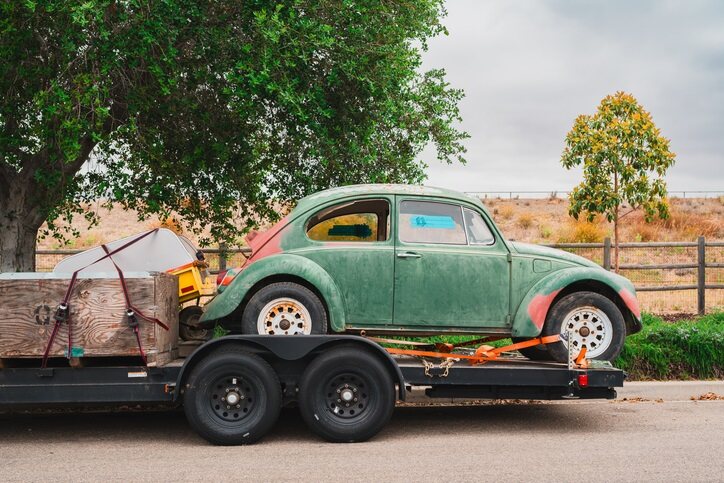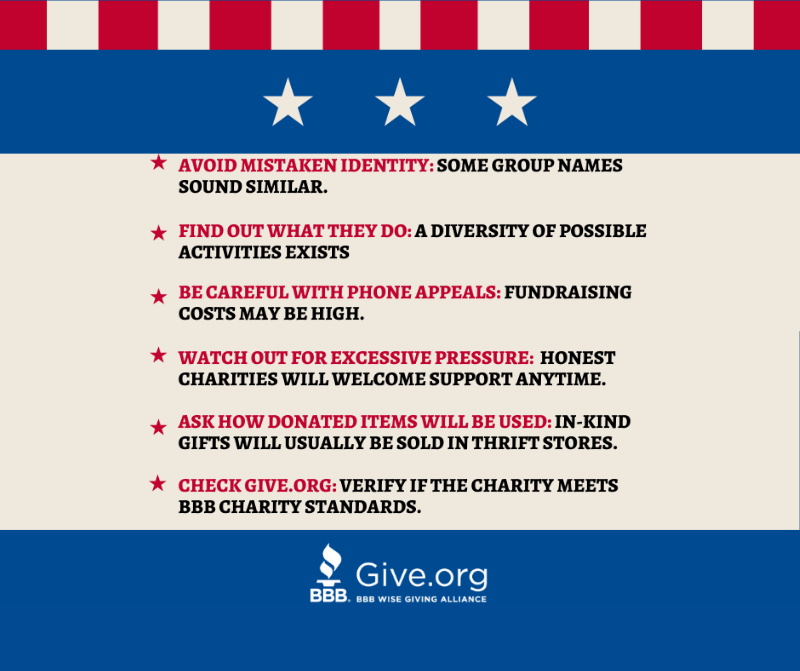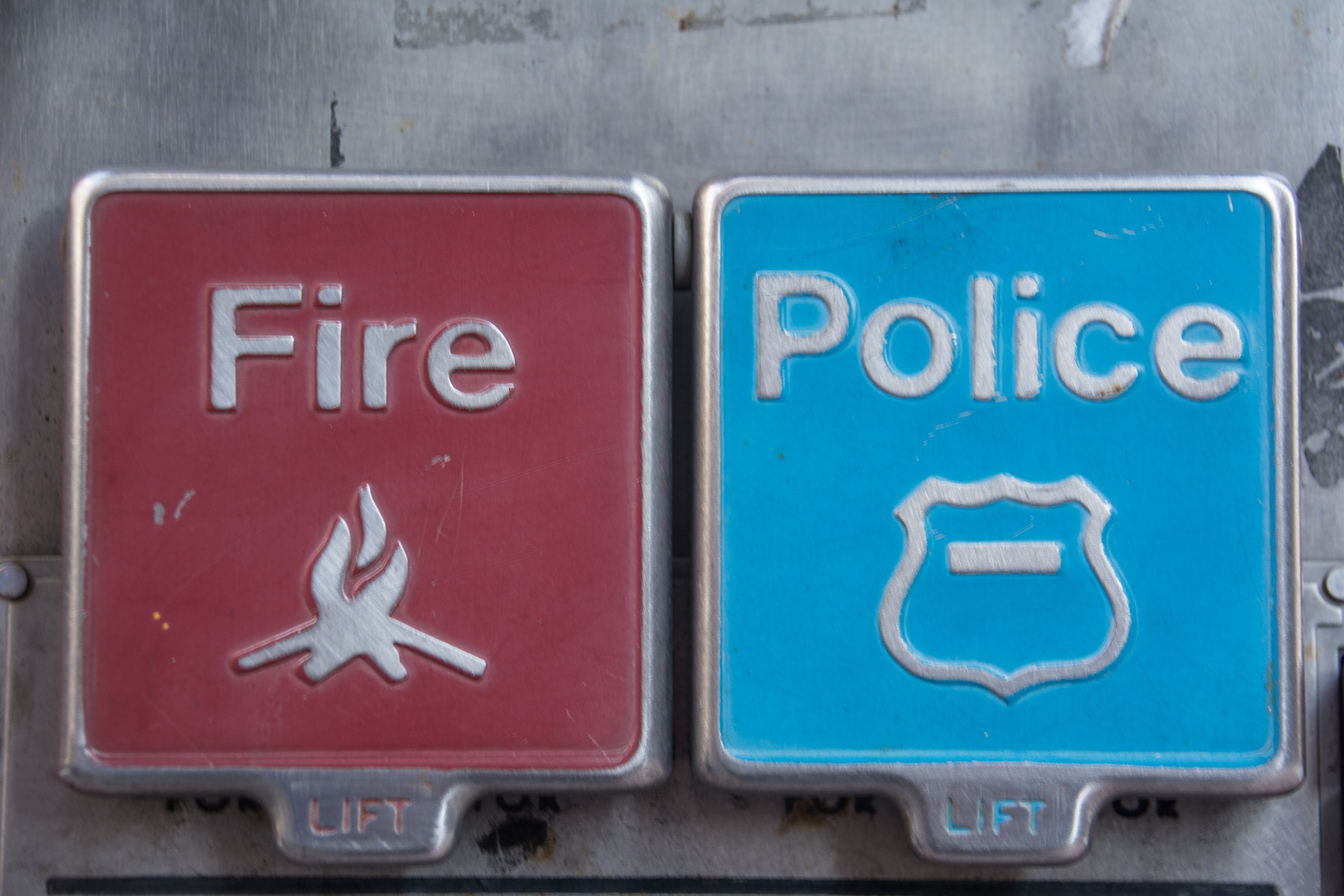Guide to Car Donations for Charities

Six Things To Consider When Donating Your Car
The gifting of used cars to charities has become a favorite way for Americans
to dispose of unwanted vehicles. And why not? You can avoid the headache of
selling or junking the car, help a charitable cause, and lower your tax
burden, all at the same time. If you have been approached by a car donation
charity, you may want to consider this opportunity, but make sure you proceed
with caution and do your research first.
1.Do some research- Whether you have
been approached by a charity or are looking for a charity on your own, it is
important that you understand more about the organization and whether it funds
a cause you want to support and is trustworthy. Visit BBB’s Give.org to see if we have a report showing that the charity meets
the BBB Standards for Charity Accountability.
2. Verify the charities’ tax-exempt status - If you plan on taking a deduction for the car donation on your federal
income taxes, make sure the charity is tax exempt as a charity under section
501(c)(3) of the Internal Revenue Code. One exception would be a church or
other house of worship, which is not required to apply to the IRS for
charitable tax-exempt status. To verify that the organization is a tax exempt
charity, you can use this link or reach out to the charity directly for their
IRS tax exemption letter: https://www.irs.gov/charities-non-profits/exempt-organizations-select-check
3. Understand deduction amounts - In most car donation circumstances the vehicle is re-sold at auction by a third-party on behalf of the charity. The auction sale “gavel price” determines the value of your tax-deductible donation. The charity should inform you of this sale amount. Keep in mind that the resale price is likely to be far less than the fair market value of the car, especially if the car is in poor shape.
There are a few special circumstances where you could claim the fair-market-value of the car. For example, if the charity did not sell the car but used it to help people it served or gave it away to a needy family. In such cases, make sure you have written verification from the charity about that use. If you use a vehicle pricing guide to determine the fair-market-value of the car, check to make sure it is the same model, year and condition for the listed value.
4. Begin collecting information needed for the tax deduction - Cars valued above $500 will require a written acknowledgment from the charity. Also, IRS Form 8283 will need to be completed when filing annual federal income taxes. If the car value is over $5,000, you will need a written appraisal to be included with your tax forms. Additional information required for the tax write-off for a car donation includes:
- - Receipt from the charity for the car donation.
- - Year, make, model, and vehicle identification number (VIN).
-
- Statement from the charity noting that the vehicle was sold between two unrelated parties and that you received no goods and services in return to qualify it as a donation.
See this IRS publication for additional details: www.irs.gov/pub/irs-pdf/p4303.pdf.
5. Understand the amount going to charity - The amount the charity receives will vary and is usually based on the agreement between the charity and the third-party collecting and selling the cars. Usually, the charity will gain a percentage of the proceeds or a fixed, flat amount per vehicle sold from the car re-sales. If the promotion and/ or charity website is not clear about how much the charity gets, ask them to provide this information.
6. Title transfer -The process will require a title transfer to the charity. We recommend that the title is transferred to the charity before the car leaves your property. This will help you avoid liability if something happens to the car (for example, if the car is illegally parked or in an accident) prior to the charity’s re-sale.
BBB Accredited Charities That Welcome Car Donations
When you donate a used car, you help support the charity’s mission and get a tax deduction. Usually, a charity accepting car donations will provide a page on their website explaining this donation option, as well as the steps on how to get started. While car donations used to be a niche type of donation offered by few charities, today it is a common option to support your favorite cause.
Below are a few BBB Accredited Charities that accept car donations. Please note that there are many more groups that accept such gifts. If you don’t see car donations offered on a charity’s website, you can reach out to the charity and verify if they accept cars. Of course, we urge donors to visit BBB’s Give.org to verify whether the charity meets the BBB Charity Standards.
- 1. American Cancer Society - awards grants to academic institutions and professionals in the fields of medicine and science for investigations into the causes, prevention, and cure of cancer. The organization also coordinates an educational, advocacy, and media campaign to help adults and children lower their risks of contracting cancer. ACS also issues guidelines for forms of cancer pertaining to diagnosis, care options, symptom management, pain control, and related aspects. The American Cancer Society offers a car donation program. In some cases, the cars will be used by ACS to help provide rides to cancer patients for treatment or it might be re-sold to provide funds for other activities. To access our report on this charity, use this link.
- 2. Disabled American Veterans - provides free professional assistance to veterans and their families in obtaining benefits and services earned through military service and provided by the Department of Veterans Affairs and other agencies of government. The organization also aims to ensure that veterans have resources and opportunities to enter the job market. Click here to find out about Disabled American Veterans’ vehicle donation program that is available in all 50 states. To access our report on this charity, use the following link. (Note: As a veterans organization, even though DAV is not tax-exempt under section 501(c)(3) of the Internal Revenue Code, contributions, including cars, are eligible as charitable donations for federal income tax purposes.)
- 3. Habitat for Humanity International- is a housing organization that works in local communities across all 50 states in the U.S. and in more than 70 countries to help families and individuals build or improve the place that they can call home. To donate your car to Habitat for Humanity, visit this link. For your reference, here is a link to our report on the organization.
- 4. Make-A-Wish Foundation of America- grants wishes to children aged 2-1/2 to 17-years-old with life threatening medical conditions. The organization promotes the development and handling of resources used to grant wishes and supports affiliated chapters in the administration of their wish programs. Some, but not all, of the affiliates of this national office will accept car donations. Visit this page to find out more. To access our report on this charity, use the following link.
- 5. Salvation Army (National Corporation) – is a faith-based organization works with a network of facilities in communities throughout the United States to provide shelter for the homeless, gifts and groceries at Christmas, daycare services, after-school tutoring, scouting activities for boys and girls, job training for displaced individuals, Bible classes for those in prison, summer camps for children, disaster relief and more. To access their website page on car donations, use this link. To view our report on this charity, click here.
Car Donation Frequently Asked Questions
1. How do I begin the car donation process?After selecting a charity and visiting BBB’s Give.org to verify that they meet BBB Charity Standards, visit the charity’s car donation page, or inquire about the donation process to get started. Steps will usually include the following:
- 1. Calling a direct number to discuss your car donation.
- 2. Gathering information on the vehicle and determining its fair-market-value in its current condition.
- 3. Scheduling your donation pickup.
Prior to committing to the car donation, be sure that you have verified that the organization has charitable tax-exempt status.
2. Do vehicles need to be operational for car donations?
Most charities will accept vehicles regardless of whether they currently run.
For vehicles that might not be operational, the cars will likely sell at a low
value, or the charity may use proceeds from the sale of parts.
3. Is a Title required for a vehicle donation?
Car donation charities will require the title of the vehicle. This also
protects you from liability once the car leaves your property. The title of
the vehicle will also be necessary for the donor if they wish to use the
donation towards a tax deduction.
4. How is the title of my car transferred during a car donation?
The title transfer is a critical step to ensure that your donation will be tax
deductible. When transferring your title, ensure that you have completed the
following steps:
- - Include an accurate odometer reading.
- - Do not try to alter mistakes on a title. Instead, request a new copy.
- - Double check if your signature must be notarized on the title.
- - If you had a lien on the vehicle, you most likely will need paperwork from the bank stating that it has been paid off.
5. How do vehicle pickups work?
A car donation charity will arrange to have the vehicle picked-up as a final
part of the donation process. The pickup may be arranged through a third-party
car donation partner firm or through a local towing company. Many charities
offer contact free pickup options at no cost for the donor.
6. Are all vehicles tax deductible?
All vehicles are considered tax deductible no matter their value or whether
they are currently operational. Remember, the value you can claim as a
deduction is usually the gavel price when the car is re-sold. As mentioned
above, when the claimed donation value is more than $5,000, an outside written
appraisal is required for a tax deduction.
7. Is it possible that the charity may not receive any money from a car
donation?
Charities will generally receive some benefit from the donation, but the
amount that helps the charity will vary. Since cars are always in demand, even
lower cost and nonfunctional vehicles can be resold for parts. But it is
possible that the charity may receive very little from the re-sale due to the
financial arrangements with an outside car re-seller. If the charity’s
website is not clear on how much they receive, ask them.
8. When should I consider a car donation?
There are many opportunities to donate your vehicle to a car donation charity.
Examples of when a car donation may be the best solution include the
following:
- - A need for an end-of-year tax deduction.
- - The vehicle needs a high level of repair and would incur a high level of maintenance costs.
- - You are looking to get a new car but feel trade-in value is low.
- - You have not had much luck selling a car on your own.
- - You want to save time and energy trying to sell your car.
9. How do I know which charity is best for car donations?
It is up to the donor to decide which charity is “best” after
checking car donation options. Considerations include what causes you care
about, how the charity will use the car or benefit from its resale and
verifying if the charity meets BBB Charity Standards by viewing reports on
BBB’s Give.org.
10. What amount of the resale of the car will go to the charity?
See if the charity’s website indicates what portion of the resale of the
car will go to the organization. If not, ask them. In most cases it is either
a percentage of the sale or an agreed flat amount per vehicle sold.
11. How quickly can a car donation charity pick up my car?
Pickup timeframes generally depend on the charity itself, their location, and
methods of pickup available. Some donation charities offer contact free pickup
either through the charity or a local towing company within usually just a few
days turnaround.
Donating your vehicle is a great way to support charities. The process for donating your car to charity is relatively easy and will often save you time and energy trying to sell a car yourself. Additionally, the added benefit of the tax deduction for donating your vehicle is often a great option for those looking to get rid of a used vehicle.












.jpg?sfvrsn=8073f1a5_0)















